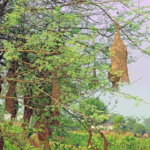Karachi, Pakistan's economic heart, faces water supply challenges due to rapid urbanization straining its aging infrastructure. Leaks, wastage, and irregular supplies affect residents, but innovative solutions like modern leak detection, desalination, and rainwater harvesting by the KWSB aim to improve accessibility and sustainability for Karachi's growing population.
Exploring the water supply landscape of Karachi, with a specific lens on the Jinnah Avenue area, this article delves into the intricate network that sustains one of Pakistan’s most vibrant metropolises. The focus is on understanding the challenges and innovative solutions shaping reliable water access in Karachi’s heart. From infrastructure assessments to community engagement, we examine strategies aimed at enhancing water security and ensuring a vital resource for the city’s residents and businesses. Discover how these initiatives contribute to Karachi’s ongoing transformation.
- Water Supply Infrastructure in Karachi: A Focus on Jinnah Avenue Area
- Challenges and Solutions for Reliable Water Access in Karachi's Heart
Water Supply Infrastructure in Karachi: A Focus on Jinnah Avenue Area

Karachi, Pakistan’s economic powerhouse, boasts a complex network of water supply infrastructure that serves its bustling metropolis. The city’s water distribution system is a critical component ensuring the well-being and prosperity of its residents. Among the key areas in Karachi, Jinnah Avenue stands out as a microcosm, highlighting both the strengths and challenges of the local water supply management.
The water supply to Jinnah Avenue area is facilitated by an interconnected web of pipelines, treatment plants, and storage facilities. These components work harmoniously to deliver potable water to homes, businesses, and public spaces. However, Karachi’s rapid urbanization poses significant strains on this infrastructure, leading to periodic water shortages and quality issues. Therefore, continuous investment in maintenance, upgrades, and innovative solutions is imperative to meet the growing demand of its diverse population.
Challenges and Solutions for Reliable Water Access in Karachi's Heart

Karachi, Pakistan’s bustling metropolis, faces significant challenges in ensuring reliable water supply, especially in areas around Jinnah Avenue. The city’s rapid urbanization and increasing population have put immense pressure on existing water infrastructure. One of the primary issues is the outdated distribution network, which often leads to water leakage and wastage, further exacerbating the scarcity. In addition, the intermittent supply of clean drinking water has become a persistent problem, impacting daily life and public health.
However, several innovative solutions are being implemented to tackle these challenges. The Karachi Water and Sewerage Board (KWSB) is actively working on modernizing the water distribution system by introducing advanced technology for leak detection and pressure management. They are also focusing on increasing water sources through desalination plants and efficient rainwater harvesting techniques. By combining these strategies, Karachi aims to enhance its water accessibility and ensure a more sustainable future for its residents, addressing the urgent need for reliable water supply in the heart of the city.
The water supply challenges faced by the Jinnah Avenue area of Karachi highlight broader issues within the city’s infrastructure. By addressing these obstacles, from aging pipes to inefficient distribution, Karachi can ensure a reliable and sustainable water supply for its residents. Investing in modern infrastructure and adopting innovative solutions are key steps towards enhancing water access and security in this vibrant urban center, ultimately improving the quality of life for all Karachis.





Leave a Reply
You must be logged in to post a comment.